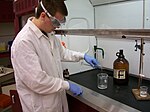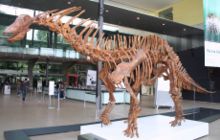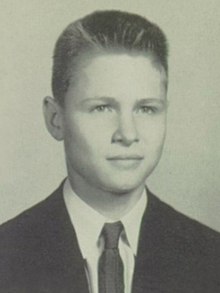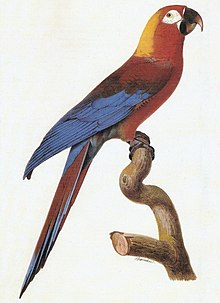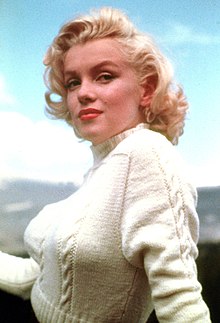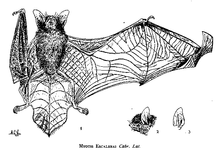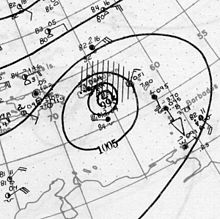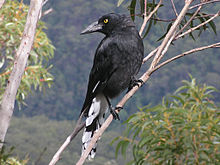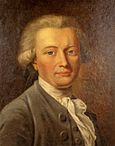Portal:Science
| Main page | Categories & Main topics | Related portals & WikiProjects | Things you can do |
Science portal
Science (from the Latin word scientia, meaning "knowledge") is a systematic enterprise that builds and organizes knowledge in the form of testable explanations and predictions about the universe.
The earliest roots of science can be traced to Ancient Egypt and Mesopotamia in around 3500 to 3000 BCE. Their contributions to mathematics, astronomy, and medicine entered and shaped Greek natural philosophy of classical antiquity, whereby formal attempts were made to provide explanations of events in the physical world based on natural causes. After the fall of the Western Roman Empire, knowledge of Greek conceptions of the world deteriorated in Western Europe during the early centuries (400 to 1000 CE) of the Middle Ages but was preserved in the Muslim world during the Islamic Golden Age. The recovery and assimilation of Greek works and Islamic inquiries into Western Europe from the 10th to 13th century revived "natural philosophy", which was later transformed by the Scientific Revolution that began in the 16th century as new ideas and discoveries departed from previous Greek conceptions and traditions. The scientific method soon played a greater role in knowledge creation and it was not until the 19th century that many of the institutional and professional features of science began to take shape; along with the changing of "natural philosophy" to "natural science."
Modern science is typically divided into three major branches that consist of the natural sciences (e.g., biology, chemistry, and physics), which study nature in the broadest sense; the social sciences (e.g., economics, psychology, and sociology), which study individuals and societies; and the formal sciences (e.g., logic, mathematics, and theoretical computer science), which study abstract concepts. There is disagreement, however, on whether the formal sciences actually constitute a science as they do not rely on empirical evidence. Disciplines that use existing scientific knowledge for practical purposes, such as engineering and medicine, are described as applied sciences.
Science is based on research, which is commonly conducted in academic and research institutions as well as in government agencies and companies. The practical impact of scientific research has led to the emergence of science policies that seek to influence the scientific enterprise by prioritizing the development of commercial products, armaments, health care, and environmental protection. (Full article...)
Selected article
Selected image
The Hubble Space Telescope (HST) is a telescope in orbit around the Earth, named after astronomer Edwin Hubble for his discovery of galaxies outside the Milky Way and his creation of Hubble's law, which calculates the rate at which the universe is expanding. Its position outside the Earth's atmosphere allows it to take sharp optical images of very faint objects, and since its launch in 1990, it has become one of the most important instruments in the history of astronomy. It has been responsible for many ground-breaking observations and has helped astronomers achieve a better understanding of many fundamental problems in astrophysics. Hubble's Ultra-Deep Field is the deepest (most sensitive) astronomical optical image ever taken.
Selected biography
After his return to continental Europe, Forster turned towards academics. From 1778 to 1784 he taught natural history. Most of his scientific work consisted of essays on botany and ethnology, but he also prefaced and translated many books about travels and explorations, including a German translation of Cook's diaries. Forster was a central figure of the Enlightenment in Germany.
Did you know...
- ...that Scientists and Engineers for America is an organization focused on promoting sound science in government, and backing political candidates who support science and its applications?
- ...that the 2004 Christmas Eve Snowstorm was the most significant snow event for South Texas since 1895?
- ...that Stanford professor Kate Lorig developed a peer-led chronic disease self management course which is the basis of the Expert Patient Programme of the British National Health Service?
- ...that walking fish can actually skip, crawl, slither, and even climb trees?
- ...that the Thanksgiving 1984 Nor'easter deposited a 197-foot Venezuelan freighter in the backyard of a Palm Beach, Florida socialite, where it remained for several months?
Science News
- 30 December 2020 – 2020 in paleontology
- Scientists at the Russian Academy of Sciences announce the discovery of a "well-preserved" woolly rhinoceros carcass in Abyysky District, Sakha, Russia, which was revealed by melting permafrost in August. The Russian Academy of Sciences says that the woolly rhinoceros was likely 3 or 4 years old when it died by drowning in the river, and could be anywhere from 20,000 to 50,000 years old. (ABC News)
- 18 December 2020 –
- A review of some recent medical studies shows that memory T cells may play a role in a phenomenon known as cross-reactivity, which researchers found may perhaps give certain people, in some cases, some level of immunity to the virus that causes COVID-19 even without them having been exposed to or infected with the virus, or having received a vaccine. There are certain structural and clinical similarities between the virus that causes COVID-19 and the other coronaviruses that are related to it, which cause SARS and MERS. (MSN)
- 16 December 2020 – Chinese space program
- China National Space Administration (CNSA) spacecraft Chang'e 5 returns to Earth carrying samples of lunar rocks and soil from the surface of the Moon. The capsule will be airlifted to Beijing for formal opening and the samples will be made available to scientists in other countries, according to the CNSA. (The Guardian)
- 6 December 2020 – Uncrewed spaceflights to the International Space Station
- A SpaceX Falcon 9 launches a cargo ship into orbit to re-supply the International Space Station. (CBS News)
- 1 December 2020 – 2020 SO
- Unknown astronomical object 2020 SO makes its closest approach to Earth at a perigee distance of approximately 0.13 lunar distances (50,000 km; 31,000 mi). Researchers, who discovered 2020 SO on September 17, 2020, are still unsure whether the object is a small near-Earth asteroid or an artificial object. The booster of Surveyor 2's Atlas-Centaur rocket, launched by NASA in 1966, is suspected by the Jet Propulsion Laboratory. (CNET)
- 28 November 2020 – Assassination of Iranian nuclear scientists
- Assassination of Mohsen Fakhrizadeh
Portals
